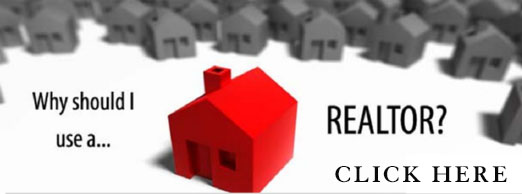To Rent Or Buy? Another look at the age old question.
Posted by Steve Harmer on Monday, June 12th, 2017 at 12:27pm.
 When making the decision either to rent or buy a place to live, there are two broad categories of factors that must be considered.
When making the decision either to rent or buy a place to live, there are two broad categories of factors that must be considered.
The first and most obvious category represents the financial aspects of your decision. The second category is a set of personal and emotional factors, which are more intangible but play an important role in the decision to rent or buy. Here, we look at the financial factors, including the initial and ongoing costs as well as the long-term pros and cons of owning your home.
Examining Your Finances
The first step in the decision-making process is to determine whether or not you can afford to purchase a home. Issues to consider include your ability to make a down payment (generally between 5% and 20% of the home's purchase price) and pay closing costs (which may be an additional 5%). These costs are likely to exceed substantially the initial payment and security deposit that would be required if you were renting instead of buying. Of course, having enough money to cover the initial purchase of a new home is only half of the battle.
Before moving into your new home, you'll need to put some thought into how much it's going to cost you to stay there after you take up residence. Many financial experts suggest that your monthly mortgage payment not exceed 28% of your gross monthly income and that your total monthly debt payments not exceed 36% of your gross monthly income. If you go beyond these limits, you may run into trouble because, in addition to paying the mortgage each month, you have to factor in home maintenance. From carpet to window coverings, new appliances to a new roof, everything costs money and nothing lasts forever. Renting may be a little easier on the pocketbook because it provides a fixed-dollar cost for monthly expenditures, which are paid simply with the rent. Besides perhaps increasing from year to year, the rent remains steady. And, if maintenance issues arise, the landlord pays for the repairs. Instead of spending your money on a new roof, you can invest it or spend it as you like.
 If you've done the math and can afford to make the initial purchase and service the ongoing debt, the next factor you have to decide is whether this purchase benefits you financially. You may find a rental in a suburban location outside of a major city, that quite possibly charges a month's rent that is significantly less than a monthly mortgage payment for properties within the city. Of course, even if the monthly cost of renting is less than the cost of buying, there are long-term financial considerations that must be taken into account.
If you've done the math and can afford to make the initial purchase and service the ongoing debt, the next factor you have to decide is whether this purchase benefits you financially. You may find a rental in a suburban location outside of a major city, that quite possibly charges a month's rent that is significantly less than a monthly mortgage payment for properties within the city. Of course, even if the monthly cost of renting is less than the cost of buying, there are long-term financial considerations that must be taken into account.
Long-Term Cost/Benefit Analysis Proponents of buying often cite the ability to build equity, the tax breaks and the investment value of a home as solid reasons to buy instead of rent. While these arguments have merit, there are downsides to all of them. This chart outlines the positive and negative long-term realities of the equity, tax breaks and investment value associated with buying a home.
Do the Calculations
A variety of online calculators are available to help you evaluate the financial aspects of the rent versus buy decision, but keep in mind that you need to estimate a range of variables that includes the number of years you will stay in the home.
 To estimate the investment profit the home will provide for you, you must assume the yearly rate of appreciation on the home's value. The results provided by a calculator and the investment evaluations you make are only as good as the assumptions used to calculate them, and don't forget to consider the cost of ongoing maintenance. After you have carefully considered the financial issues, it's time to explore the non-financial issues.
To estimate the investment profit the home will provide for you, you must assume the yearly rate of appreciation on the home's value. The results provided by a calculator and the investment evaluations you make are only as good as the assumptions used to calculate them, and don't forget to consider the cost of ongoing maintenance. After you have carefully considered the financial issues, it's time to explore the non-financial issues.
There's More To It Than Money
After you have thoroughly researched the financial issues of the rent-versus-buy decision, let's look at the issue from a different perspective, one involving emotional factors and personal preferences that collectively determine the impact of your decision on your quality of life. These "non-financial" issues are based on your personality, abilities, and values. They require careful consideration, beginning with this question: what attributes about the place you live in are most important to you?
Environment: City Vs. Suburbs
The environment you choose to reside in plays a major role in your quality of life. Consider your personality. Do you like the character of the city, with its nightlife, quaint cafés and diverse cultures, or do you prefer the safety, conformity, green space and free parking in suburbia? Do you prefer to walk to work, take the subway or ride the train? How important is privacy, and how far do you like to live from your neighbors? If you can afford only those properties in environments that do not fit your preferences, you need to think about whether you are willing to forgo these preferences for the sake of owning a place.
Amenities versus Customization
Dollar for dollar, renting generally offers a substantially greater number and variety of amenities than buying. Consider, for example, the number of homes that come with an Olympic-sized swimming pool, clubhouse, tennis courts, basketball court and on-site gym. If you're looking to have these amenities in your private residence, get ready to spend a lot of money. Upscale apartment buildings, found in nearly every city, offer such options at a comparatively lower monthly rent than a mortgage for a property with the same attributes. On the other side of the coin, there are affordable homes with private outdoor spaces that you can customize to your liking. There aren't many apartment buildings that come with acres of property in the country that will let you do your own landscaping, keep horses or grow a garden.
Flexibility Vs. Stability
Renting a place to live gives you significantly more freedom to get up and go at a moment's notice. The financial consequences of breaking a lease are minimal and can be addressed by simply writing a check. Homeowners wanting to leave their current residence face the much more complicated process of selling their property. The mortgage still needs to be paid, and the grass still needs to get cut while you are waiting to find a buyer. Unless money is no object, the transition to a new place of residence is likely to take months, not days. On the other hand, with the flexibility of renting also comes some instability. The landlord can always raise the rent or ask you to move before you are ready to do so. If you own a house and make the payments, you can stay as long as you desire. Further, if you purchase a home with a fixed-term mortgage than your monthly housing costs will be relatively stable (excluding repairs or property tax increases).
Personalized Aesthetics Vs. Less Work
Buying a house gives you the opportunity to choose a unique and distinct architectural style and to personalize it. But this freedom comes with the responsibility of keeping up with maintenance and repairs. Homeowners simply can't avoid the need to cut the grass and fix leaky faucets. If you prefer to spend your weekends relaxing in the park instead of wandering the aisles at the local hardware store or cutting grass, you might want to think twice about buying a home - unless of course, you can budget a substantial amount of money to hire some help. That saying you can rent a house that would still need the grass to be cut and there are always chores that you could do,
Although renting gives you no control over exterior aesthetics, you don't have to worry about dealing with wear and tear on your residence or problems resulting from bad construction. Renting still gives you plenty of opportunities to choose furnishings and decorate your interior environment in a manner that suits your style. And, as a renter, all you have to do when something goes wrong is notify your landlord.
Emotional Satisfaction Vs. Less Worry
Home ownership is often called "the American dream." There's just something emotionally appealing about putting down roots, getting involved in the community and having a place to call your own. Of course, homeowners also need to worry about the long-term character of the neighborhood and keep up with maintenance to sustain property values. If you're simply looking for a place to rest between days at work and nights hitting the town, renting may be the perfect answer. Just keep paying the rent and let somebody else do all the worrying. Don't forget that if you do buy a home in a neighbourhood that has a large number of rentals you may find that the rental units who have no incentive to keep their places clean and tidy can ultimately effect your home value.
A Personal Decision
Unlike the financial aspects of home ownership, the aspects that have a bearing on your lifestyle and values cannot be calculated online with some mathematical formula. If you can make the rent payments or qualify for the mortgage, you can live anywhere that you want to live. But buying a home is a decision you should take some time to consider, determining how its location, amenities, and need for repairs will affect your lifestyle and general emotional satisfaction.

